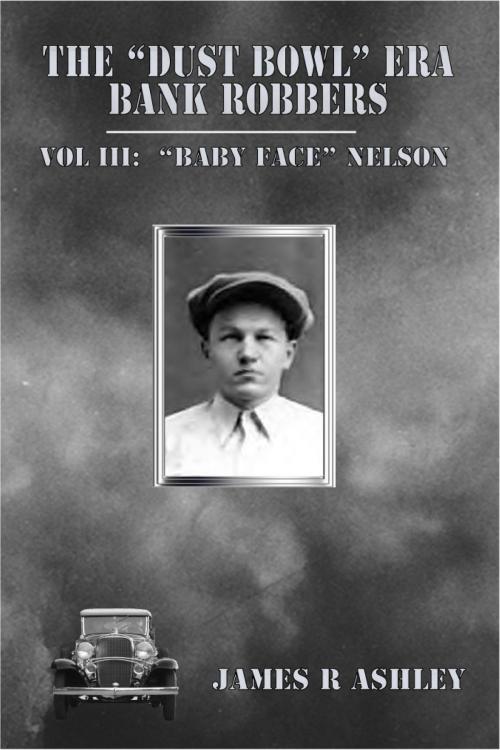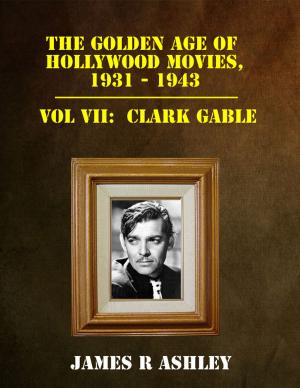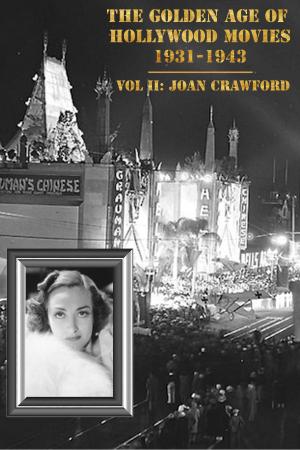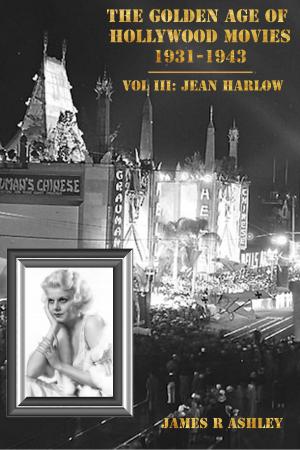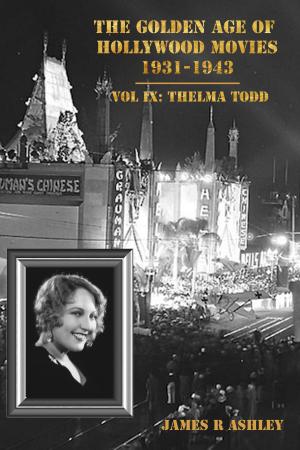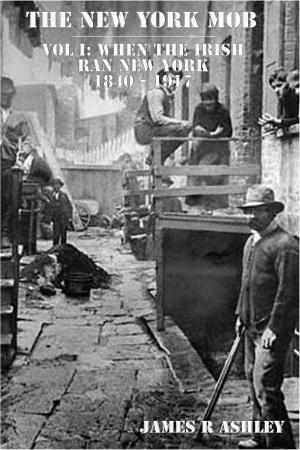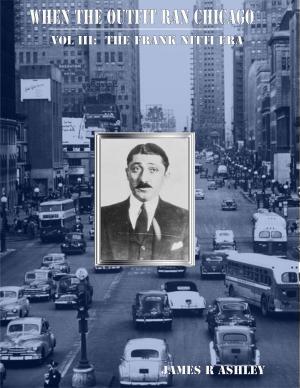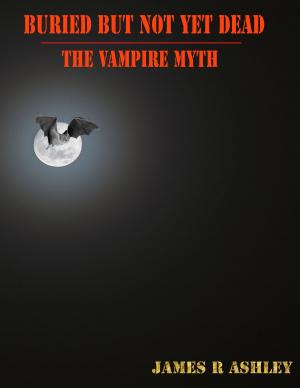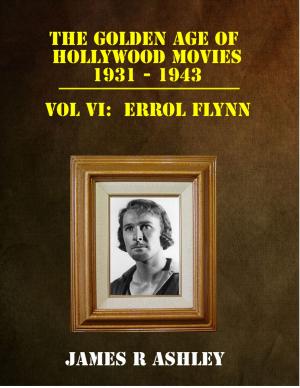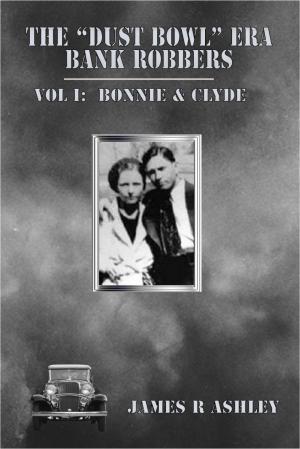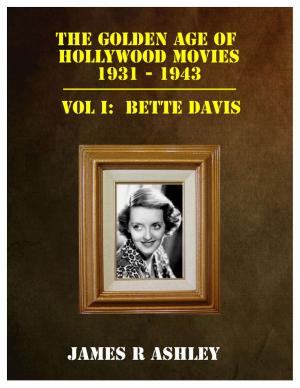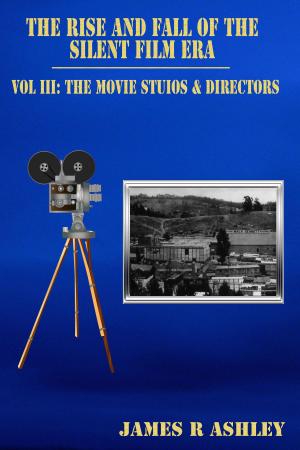| Author: | James R Ashley | ISBN: | 9781301314669 |
| Publisher: | James R Ashley | Publication: | July 14, 2013 |
| Imprint: | Smashwords Edition | Language: | English |
| Author: | James R Ashley |
| ISBN: | 9781301314669 |
| Publisher: | James R Ashley |
| Publication: | July 14, 2013 |
| Imprint: | Smashwords Edition |
| Language: | English |
The “Dust Bowl” of the early 1930s spawned the era of the Mid-West bank robbers. Gangs led by Bonnie & Clyde, John Dillinger, “Pretty Boy” Floyd, and “Baby Face” Nelson became the stuff of American legend. None of them was spectacularly successful at bank robbing and all of them came to bad ends, being shot down in the end by the law.
The “Dust Bowl” bank robbers personified the anti-hero who gave the banks a taste of their own medicine and the public could not get enough of it. When Bonnie & Clyde shot it out with the law and John Dillinger broke out of jail, the public followed their every move with the greatest of interest, as many of them would have secretly have liked to have done the same thing, had they the nerve for it. As it was, they glamorized these bandits and made them bigger than life, because that’s what the public wanted to believe about them. Painting the town red every night at the best restaurants and nightclubs, always on the arm of beautiful women, leading a life of danger and excitement at every turn, and engaging in submachine gun fights with the law “at the drop of a hat” was the life people dreamed these bandits led.
The reality for most of these bank robbers was, however, far different. Many times they lived like bums, either out of their car or camping out in the woods during the dust storms in the summer, the rain & fog of the fall, and the freezing temperatures of the winter. They were continually on the run and rarely stayed in the same place for long. If they rented a place at large, someone invariably recognized them and the police would show up before long and they would be awakened during the night or approached during the day to engage in a life and death gun battle. If the underworld hid them out, they would be forced to pay an exorbitant amount of money for a filthy, run-down room. Any wounds they sustained in the gunfight, no matter how serious, had to either be self-treated or treated by an underworld doctor who usually lost his license because of malpractice or performing illegal abortions. They had no friends, only associates who were in the game for the money. And when the going got rough, there was no loyalty between thieves and the famous bank robbers would be sold out in a minute for a reduced sentence for the “squealer.”
“Baby Face” Nelson was the quintessential “Dust Bowl” era gangster, a tough submachine gun shooting bank robber who was afraid of nothing. He killed “at the drop of a hat” and wasn’t ever afraid to shoot it out toe-to-toe with the law. He is best know for running with the Dillinger gang and for his presence at Little Bohemia. The other “Dust Bowl” era gangs, Bonnie & Clyde, John Dillinger, and “Pretty Boy” Floyd all were shot down by the law without being able to shoot back. “Baby Face” Nelson, however, was the only one to engage the FBI toe-to-toe in his last fight and go out in a blaze of glory like the “Roaring Twenties” gangsters of the Hollywood movies, spitting lead from a Thompson submachine gun. So turn the page and ride alongside of “Baby Face Nelson, the last of the old-time gangsters.
The “Dust Bowl” of the early 1930s spawned the era of the Mid-West bank robbers. Gangs led by Bonnie & Clyde, John Dillinger, “Pretty Boy” Floyd, and “Baby Face” Nelson became the stuff of American legend. None of them was spectacularly successful at bank robbing and all of them came to bad ends, being shot down in the end by the law.
The “Dust Bowl” bank robbers personified the anti-hero who gave the banks a taste of their own medicine and the public could not get enough of it. When Bonnie & Clyde shot it out with the law and John Dillinger broke out of jail, the public followed their every move with the greatest of interest, as many of them would have secretly have liked to have done the same thing, had they the nerve for it. As it was, they glamorized these bandits and made them bigger than life, because that’s what the public wanted to believe about them. Painting the town red every night at the best restaurants and nightclubs, always on the arm of beautiful women, leading a life of danger and excitement at every turn, and engaging in submachine gun fights with the law “at the drop of a hat” was the life people dreamed these bandits led.
The reality for most of these bank robbers was, however, far different. Many times they lived like bums, either out of their car or camping out in the woods during the dust storms in the summer, the rain & fog of the fall, and the freezing temperatures of the winter. They were continually on the run and rarely stayed in the same place for long. If they rented a place at large, someone invariably recognized them and the police would show up before long and they would be awakened during the night or approached during the day to engage in a life and death gun battle. If the underworld hid them out, they would be forced to pay an exorbitant amount of money for a filthy, run-down room. Any wounds they sustained in the gunfight, no matter how serious, had to either be self-treated or treated by an underworld doctor who usually lost his license because of malpractice or performing illegal abortions. They had no friends, only associates who were in the game for the money. And when the going got rough, there was no loyalty between thieves and the famous bank robbers would be sold out in a minute for a reduced sentence for the “squealer.”
“Baby Face” Nelson was the quintessential “Dust Bowl” era gangster, a tough submachine gun shooting bank robber who was afraid of nothing. He killed “at the drop of a hat” and wasn’t ever afraid to shoot it out toe-to-toe with the law. He is best know for running with the Dillinger gang and for his presence at Little Bohemia. The other “Dust Bowl” era gangs, Bonnie & Clyde, John Dillinger, and “Pretty Boy” Floyd all were shot down by the law without being able to shoot back. “Baby Face” Nelson, however, was the only one to engage the FBI toe-to-toe in his last fight and go out in a blaze of glory like the “Roaring Twenties” gangsters of the Hollywood movies, spitting lead from a Thompson submachine gun. So turn the page and ride alongside of “Baby Face Nelson, the last of the old-time gangsters.
